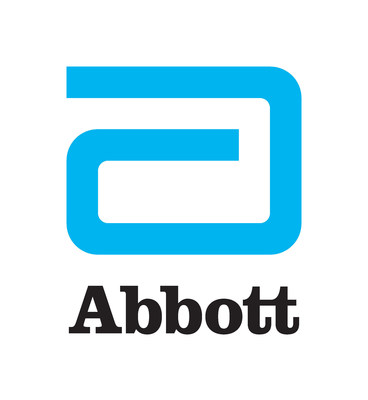Abbott Partners With NIH On BRAIN Initiative to Advance Research for Neurological Disorders
- Partnership with NIH aims to increase understanding and accelerate the application of neurostimulation therapies
- The BRAIN Initiative brings together the brightest minds across disciplines to improve the treatment and prevention of brain disorders
ABBOTT PARK, Ill., May 14, 2019 /PRNewswire/ -- Abbott (NYSE: ABT) today announced that it has partnered with the National Institutes of Health (NIH) on the BRAIN (Brain Research through Advancing Innovative Neurotechnologies) initiative to accelerate advancements in neuroscience research. As part of the agreement, Abbott will provide the company's neuromodulation technologies—including directional deep brain stimulation (DBS), spinal cord stimulation (SCS), and dorsal root ganglion (DRG) therapy—for research related to these NIH initiatives to explore their application for chronic pain and progressive movement disorders, like Parkinson's disease.
"The NIH is investigating the application of these devices for the treatment of a wide range of neurological and neuropsychiatric conditions and chronic pain," said Nick B. Langhals, Ph.D., Program Director for Neural Engineering within the Division of Translational Research at the National Institute of Neurological Disorders and Stroke. "The neuromodulation technologies provided by Abbott will help us determine the inner workings of the nervous system to help fill gaps in our current knowledge of the brain and provide opportunities for exploring how the brain interacts with the human body in patients with neurological conditions."
Abbott's neuromodulation therapies have helped thousands of people with neurological conditions to continue living fuller lives while managing Parkinson's disease, essential tremor and chronic pain. In addition to disrupting the marketplace with innovative therapies, Abbott continues to focus on enhancing the patient experience, such as integrating consumer-friendly technologies like mobile phones and tablets.
Neurological disorders and diseases present a significant burden to the United States healthcare system, with over 100 million people experiencing at least one of the known neurological disorders.1 With age being a contributing factor to many neurological diseases such as Parkinson's disease, this number is expected to increase by 2050.1,2
Launched in 2013, the BRAIN Initiative looks to understand the functions of the human brain by researching and developing new uses for innovative technologies. Recently, the BRAIN Initiative assembled participants from contributing federal agencies, non-federal organizations, as well as members of the media, public, and Congress at its 5th Annual Investigators Meeting in Washington, D.C. The meeting provided a forum for discussing recent scientific developments and potential new directions in brain research and identified areas for collaboration and research coordination.
"Researchers at Abbott are continuously striving to better understand how neuromodulation technology can benefit people living with chronic pain or movement disorders," said Keith Boettiger, vice president, Neuromodulation, Abbott. "In addition to our own research efforts, including clinical and real-world studies, working together with world-class scientists at the NIH will help us further validate our neuromodulation therapies and explore new avenues where they may benefit patients affected by devastating neurological conditions."
About Abbott's Neuromodulation Therapies
For people living with chronic pain and movement disorders, Abbott's neuromodulation portfolio of therapies help them move and feel better, allowing chronic pain patients to reduce or stabilize the long-term use of opioids and get back to living their lives, while helping patients with movement disorders combat the symptoms of their condition. Read more about our neuromodulation therapies and important safety information for DBS, SCS and DRG.
About Abbott
Abbott is a global healthcare leader that helps people live more fully at all stages of life. Our portfolio of life-changing technologies spans the spectrum of healthcare, with leading businesses and products in diagnostics, medical devices, nutritionals and branded generic medicines. Our 103,000 colleagues serve people in more than 160 countries.
Connect with us at www.abbott.com, on Facebook at www.facebook.com/Abbott, www.facebook.com/AbbottChronicPain and www.facebook.com/AbbottParkinsons on Twitter @AbbottNews and @AbbottGlobal.
References:
- Gooch C, Pract E, Borenstein A,. The burden of neurological disease in the United States: A summary report and call to action. Annals of Neurology 2017. https://doi.org/10.1002/ana.24897
- Marras, C., Beck, J. C., Bower, J. H., et al., on behalf of the Parkinson's Foundation P4 Group (2018). Prevalence of Parkinson's disease across North America. Npj Parkinson's , 4(1), 1–7.
SOURCE Abbott

For further information: Abbott Media: Brent Tippen, 512-286-4217 OR Abbott Financial: Mike Comilla, 224-668-1872
 BACK TO PRESS RELEASES
BACK TO PRESS RELEASES
